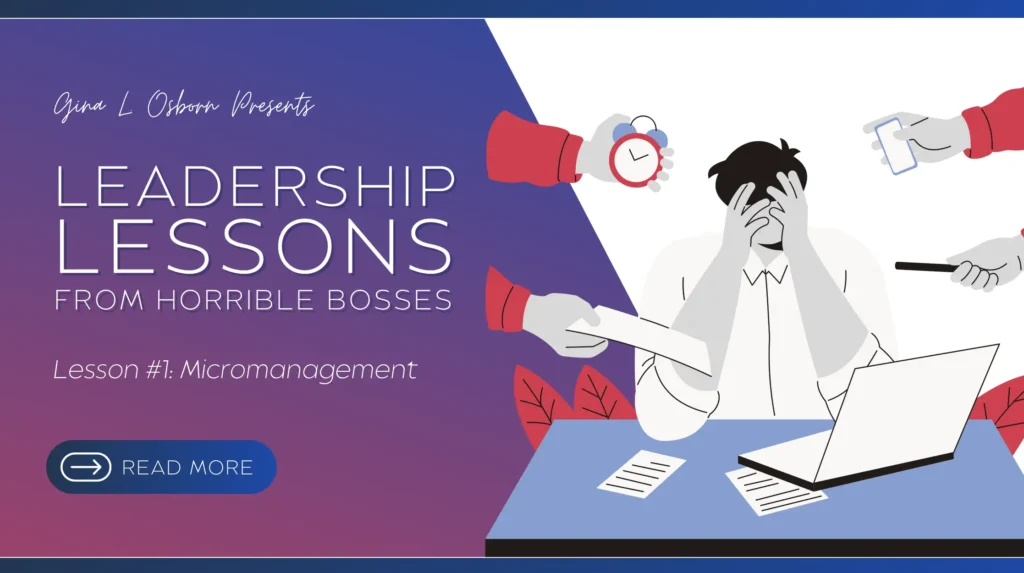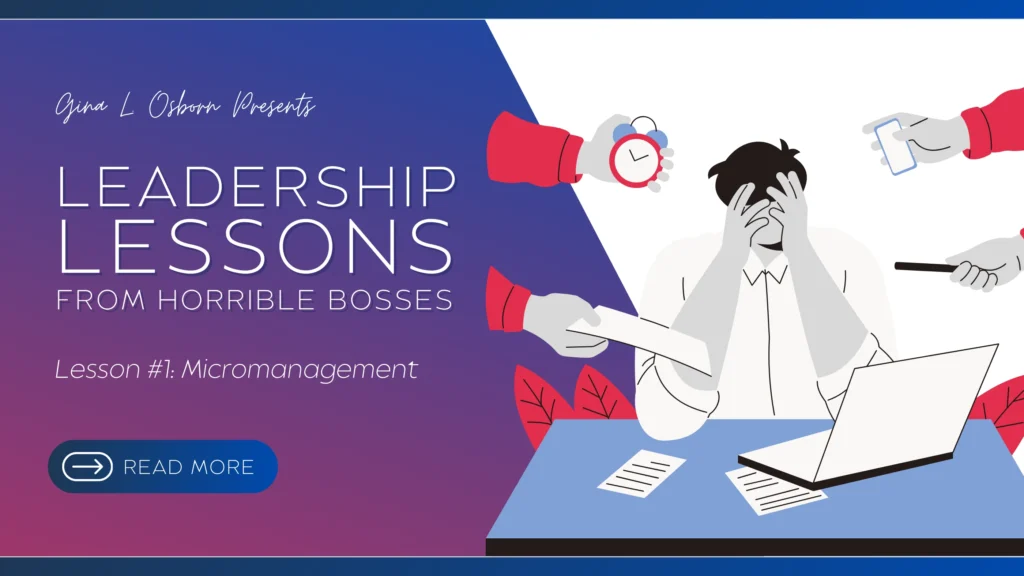
We’ve all had bosses who micromanage. This behavior, though often well-intentioned, can suffocate creativity and stifle growth. In my experience, micromanagement typically stems from two primary sources: insecurity and inexperience. Whether the root cause is a lack of trust or a compulsive desire to oversee every detail, the consequences are consistently damaging.
The Perils of Micromanagement
Micromanagement is more than a nuisance; it erodes morale and limits innovation. When leaders dictate every step, employees start to feel like cogs in a machine rather than valued contributors. They stop thinking creatively because they know that any idea outside the box will be met with resistance. This not only dampens enthusiasm but also results in a workforce that merely goes through the motions, offering no more than what’s strictly required.
In a culture of micromanagement, employees may also develop a fear of making mistakes. Mistakes, however, are crucial for learning and growth. When leaders prevent team members from making even minor errors, they rob them of the opportunity to learn valuable lessons. Over time, this creates an environment where employees are hesitant to take initiative, knowing that any deviation from the “approved way” will be criticized.
What I Learned from Micromanagers
Having dealt with my fair share of micromanagers, I vowed to do things differently when I became a leader. I recognized the importance of giving my team the freedom to perform. My role was not to impose my way of doing things but to ensure a creative space where people could thrive. Even if my approach was more efficient due to years of experience, it didn’t mean it was the best or only way to get the job done.
As I progressed in my career, I sometimes fell into the trap of steering others toward my preferred method. It took time to realize that I was stifling their ability to innovate by insisting on my way. They were being paid to be creative and resourceful, yet I was unknowingly molding them into replicas of myself. When I allowed my team members to experiment and learn through trial and error, they often came up with solutions far superior to mine. The act of letting go and trusting my team was not only liberating for them but also transformative for me as a leader.
Embracing Mistakes as Learning Opportunities
An example from my time as the Assistant Special Agent in Charge of Cyber and Computer Forensics for the FBI in Los Angeles illustrates this lesson. When it came to technical skills, my knowledge was minimal compared to the expertise of even our newest cyber agents. However, I had the advantage of experience. The more secure I became in my leadership role, the more comfortable I was with allowing our young supervisors to make mistakes.
There were times when I could see them heading straight for a rabbit hole. An inexperienced leader might have stopped them, but I let them proceed, provided that no harm would come to anyone and no taxpayer money was wasted. I would issue a gentle warning about the possible pitfalls ahead but rarely prevented them from proceeding. I would be there at the bottom of that rabbit hole to help them back out when they inevitably got stuck. Their egos might have been bruised, but the lessons learned were invaluable.
Allowing others to stumble and pick themselves back up is how great leaders are forged. These experiences taught them to anticipate challenges, think more critically, and approach problems with confidence and resilience. As their leader, my job was not to make decisions for them but to empower them to make their own.
Letting Go for the Greater Good
Micromanaging bosses, no matter how well-meaning, can drain the life of a team. The impact of making all the decisions, dictating every action, and controlling every outcome is profound. It deprives employees of the chance to grow, learn, and shine. As leaders, we must have the grace to step back and allow our team members to chart their own paths, even if it means letting them wander off course now and then.
The best leaders surround themselves with great people, not to micromanage them, but to inspire them. All it takes is being a role model, instilling confidence, and creating an environment where team members feel valued and trusted. When this happens, people don’t just perform their duties; they flourish.
The irony is that when we let go of control, we actually gain more. We get a team that feels ownership over their work and strives to deliver exceptional results, not because they have to, but because they want to.
About Gina L. Osborn Gina L. Osborn is a former FBI Assistant Special Agent in Charge, former Chief of Safety for LA Metro, and recognized expert in security, crisis management, and leadership. With extensive experience combating international terrorism, cybercrime, and violent crime, she is committed to helping organizations develop effective, proactive safety strategies and shares lessons on authentic leadership, leading through chaos, crisis, and change, and rising to the top in male-dominated fields. To learn more, visit www.ginalosborn.com.

